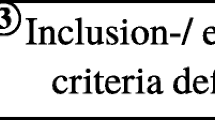Abstract
Traceability is demanded within mature development processes and offers a wide range of advantages. Nevertheless, there are deterrents to establishing traceability: it can be painstaking to achieve initially and then subject to almost instantaneous decay. To be effective, this is clearly an investment that should be retained. We therefore focus on reducing the manual effort incurred in performing traceability maintenance tasks. We propose an approach to recognize those changes to structural UML models that impact existing traceability relations and, based upon this knowledge, we provide a mix of automated and semi-automated strategies to update these relations. This paper provides technical details on the update process; it builds upon a previous publication that details how triggers for these updates can be recognized in an automated manner. The overall approach is supported by a prototype tool and empirical results on the effectiveness of tool-supported traceability maintenance are provided.
Preview
Unable to display preview. Download preview PDF.
Similar content being viewed by others
References
Hayes, J.H., Dekhtyar, A., Sundaram, S.K.: Advancing candidate link generation for requirements tracing: The study of methods. IEEE TSE 32(1), 4–19 (2006)
Mäder, P., Gotel, O., Philippow, I.: Rule-based maintenance of post-requirements traceability relations. In: Proc. 16th Int’l Requirements Eng. Conf., Barcelona, Spain (September 2008)
Mäder, P., Gotel, O., Philippow, I.: Enabling automated traceability maintenance by recognizing development activities applied to models. In: Proc. 23rd Int’l Conf. on Automated Software Engineering ASE, L’Aquila, Italy (September 2008)
Lano, K.: Advanced systems design with Java, UML, and MDA. Elsevier Butterworth-Heinemann, Amsterdam (2005)
Egyed, A., Grünbacher, P., Heindl, M., Biffl, S.: Value-based requirements traceability: Lessons learned. In: Proc. 15th Int’l Req. Eng. Conf., pp. 115–118 (2007)
Object Management Group Framingham, Massachusetts: OMG Unified Modeling Language Specification (Version 2.1.2) (November 2007)
Mäder, P., Gotel, O., Kuschke, T., Philippow, I.: traceMaintainer – Automated Traceability Maintenance. In: Proc. 16th Int’l Requirements Eng. Conf., Barcelona, Spain (September 2008)
Gotel, O.C.Z., Finkelstein, A.C.W.: An analysis of the requirements traceability problem. In: First Int’l Conf. on Req. Eng. ICRE, pp. 94–101. IEEE CS Press, Los Alamitos (1994)
Maletic, J.I., Collard, M.L., Simoes, B.: An xml based approach to support the evolution of model-to-model traceability links. In: Proc. TEFSE 2005, pp. 67–72. ACM, New York (2005)
Murta, L.G.P., van der Hoek, A., Werner, C.M.L.: Archtrace: Policy-based support for managing evolving architecture-to-implementation traceability links. In: 21st Int’l Conf. on Automated Software Engineering ASE, September, pp. 135–144 (2006)
Mens, T., van der Straeten, R., Simmonds, J.: A framework for managing consistency of evolving UML models. In: Yang, H. (ed.) Software Evolution with UML and XML, pp. 1–30. IGI Publishing, Hershey (2005)
Cleland-Huang, J., Chang, C.K., Christensen, M.J.: Event-based traceability for managing evolutionary change. IEEE TSE 29(9), 796–810 (2003)
Olsson, T., Grundy, J.: Supporting traceability and inconsistency management between software artefacts. In: Int’l Conf. Software Eng. and Appl. (November 2002)
Grundy, J.C., Hosking, J.G., Mugridge, W.B.: Inconsistency management for multiple-view software development environments. IEEE TSE 24(11), 960–981 (1998)
Author information
Authors and Affiliations
Editor information
Editors and Affiliations
Rights and permissions
Copyright information
© 2009 Springer-Verlag Berlin Heidelberg
About this paper
Cite this paper
Mäder, P., Gotel, O., Philippow, I. (2009). Enabling Automated Traceability Maintenance through the Upkeep of Traceability Relations. In: Paige, R.F., Hartman, A., Rensink, A. (eds) Model Driven Architecture - Foundations and Applications. ECMDA-FA 2009. Lecture Notes in Computer Science, vol 5562. Springer, Berlin, Heidelberg. https://doi.org/10.1007/978-3-642-02674-4_13
Download citation
DOI: https://doi.org/10.1007/978-3-642-02674-4_13
Publisher Name: Springer, Berlin, Heidelberg
Print ISBN: 978-3-642-02673-7
Online ISBN: 978-3-642-02674-4
eBook Packages: Computer ScienceComputer Science (R0)




